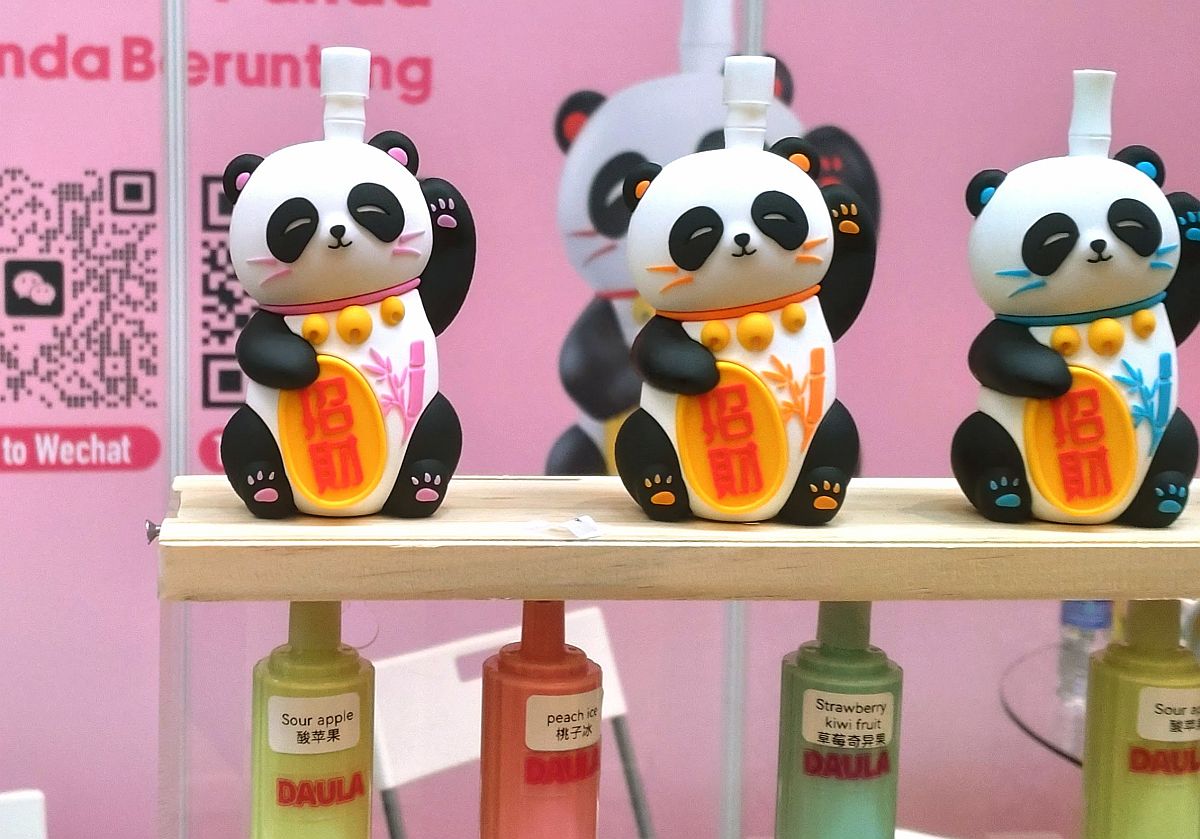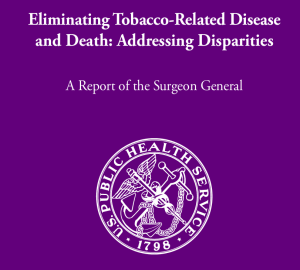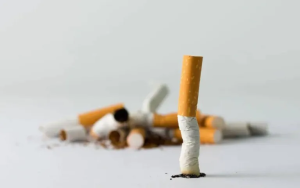Health Minister Dr Zaliha Mustafa says the Control of Smoking Product for Public Health Bill 2023 will enable the enactment of regulations on vape flavours and packaging to deter youth vaping.

KUALA LUMPUR, May 24 – The Control of Smoking Product for Public Health Bill 2023 will contain stringent regulations concerning vape flavours and packaging, says Health Minister Dr Zaliha Mustafa.
In a written parliamentary response yesterday, Dr Zaliha stated that the upcoming tobacco bill will cover extensive regulations for e-cigarettes or vape products. These regulations will include measures to prohibit products and packaging that resemble children’s toys, as well as controlling the availability of flavours that might attract adolescents.
“The Ministry of Health (MOH) plans to proceed with the presentation of the Control of Smoking Product for Public Health Bill 2023. Through this bill, comprehensive control over electronic cigarettes or vape products can be implemented, including bans on products and packaging that resemble children’s toys.
“Controls on flavours that can attract the attention of children and teenagers into using this product also can be implemented through this bill,” Dr Zaliha stated in response to Sibu MP Oscar Ling Chai Yew’s question on whether the ministry will ensure that vape does not have attractive packaging and flavours.
The health minister added that the MOH has no standard for e-liquids as there are no safe limits for the chemicals in e-liquids. “For the safety of electronic cigarette liquid, there is no standard that is set by the MOH because there is no safe limit for chemicals contained in the electronic cigarette liquid or vape.”
The removal of liquid nicotine from the Poisons List governed by the Poisons Act 1952 has effectively legalised the sale of liquid and gel nicotine without any specific regulations in place. The existing Control of Tobacco Products Regulations 2004 under the Food Act 1983 solely address conventional cigarettes and other tobacco products.
Currently, there are no regulations in place to prevent these products from being sold to minors under the age of 18, and neither are there any restrictions on ingredients, nicotine content, labelling requirements or bans on advertising, promotion, and sponsorship.
Vape products in the Malaysian market actively target the youths aged 20 and above with most products sporting the retro designs of the late 90s and 2000s: maze ball disposable vapes, Game Boy look-alikes and energy drink cans are amongst the common design choices adopted by vape companies.
However, in a recent vape convention held in Kuala Lumpur, vape companies from China were advertising disposable vape devices that could easily be mistaken for keychains and toys.
E-liquids in Malaysia frequently come with two to five per cent of nicotine (20mg to 50mg per ml) and short ingredients list, which contain vague terms such as ‘natural and artificial flavours’.
A Channel News Asia (CNA) investigation found there to be ingredients not disclosed on the ingredient label of vape e-liquids. Acetaldehyde, according to CNA, is a carcinogen and can increase the addictive effects of nicotine.
In Malaysia, vape companies mainly market fruity flavours: mango, durian, fuji apple, strawberry ice, and creamy flavours such as honey vanilla tobacco, tiramisu cream coffee, boba, and white chocolate salted caramel. While the fruity flavours might not be as enticing to children, the names and marketing of the creamy flavours could catch the attention of teenagers and children.
While e-liquids do not currently have any form of regulation, Dr Zaliha said that electronic cigarettes or vape devices fall under the jurisdiction of the Ministry of Domestic Trade and Cost Of Living Affairs by virtue of the Trade Description Order (Certification and Marking of Electronic Cigarette Device) 2022.
The order requires manufacturers and importers of electronic cigarettes to apply for a MS SIRIM certification and marking from SIRIM QAS International Sdn Bhd as the competent authority appointed by the Ministry of Domestic Trade and Cost Of Living Affairs.
The MS SIRIM marking is placed on the e-cigarette device, its spare part and container of the device in a way that is easily visible to the user. The presence of MS SIRIM marking on the electronic cigarette device indicates that it has complied with the standard and is safe to use.
According to Dr Zaliha, Malaysia currently has recorded 18 cases of e-cigarette or vaping use-associated lung injury (EVALI) and 20 other cases related to the use of e-cigarettes. The minister said that the estimated cost of treatment for a 12-day ward treatment of EVALI is RM150,000.
“Various scientific studies conducted found many negative effects [as a] consequence of electronic cigarette or vape use on health. Currently, as many as 18 cases of EVALI and 20 other cases related to the use of electronic cigarettes have been reported to the MOH since 2022.
“The cost of treatment of a new type of disease that has been detected, that is EVALI, is estimated to reach as much as RM150,000 for the 12-day period of ward admission.”
Any specific regulations for e-cigarettes or vape products, such as on flavours and packaging, will have to be drafted and signed off by the health minister, without going through Parliament, as subsidiary legislation to the Control of Smoking Product for Public Health Act 2023.
It is unclear if the government has already prepared such regulations to accompany the principal Act, as it plans to table the bill next month during the current Dewan Rakyat meeting.
#vaping #vapecontrol










